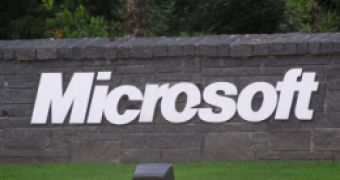On December 20th, Microsoft made the first step into the era of Google monopoly. Back in September 2007, Brad Smith, senior vice president, general counsel and corporate secretary, Microsoft, during his appearance before the U.S. Senate Subcommittee on Antitrust, Competition Policy and Consumer Rights, revealed that the Redmond company considered that the Google and DoubleClick acquisition would be equivalent with a monopoly on the online advertising market. "Combined, Google [and DoubleClick] will account for nearly 80 percent of all spending on nonsearch ads served to third party Web sites. In short, if Google and DoubleClick are allowed to merge, Google will become the overwhelmingly dominant pipeline for all forms of online advertising", Smith said at the time.
Microsoft was among the most vocal of the companies opposing the Google and DoubleClick merger, and it was joined by such household names as Yahoo. But with no avail. The Federal Trade Commission has closed the Google/DoubleClick investigation and, at the same time, has managed to put a coal in Microsoft's stocking. FTC announced that it would not seek to block in any way Google's $3.1 billion purchase of DoubleClick, stating that "after carefully reviewing the evidence, we have concluded that Google's proposed acquisition of DoubleClick is unlikely to substantially lessen competition."
Of course, Google welcomed the news, which FTC failed to consider, that the acquisition of DoubleClick would cause harm to the competition. "The FTC's strong support sends a clear message: this acquisition poses no risk to competition and will benefit consumers", commented Eric Schmidt, Chairman and CEO, at Google. "We hope that the European Commission will soon reach the same conclusion, and we are confident that this deal will deliver more relevant ads for consumers, more choices for advertisers, and more opportunities for website publishers. For us, privacy does not begin or end with our purchase of DoubleClick. We have been protecting our users' privacy since our inception, and will continue to innovate in how we safeguard their information and maintain their trust."
Until this time, Microsoft has issued no official statement on the conclusion presented by the FTC, although it can be considered as an indirect defeat. But, the Redmond company still has a fighting chance. The Google-DoubleClick deal also has to be approved by the European Union Antitrust Commission. Europe is an arena where Microsoft has faced its most dire antitrust losses, and perhaps the tables are turning and Google is up for the same treatment. Still, the FTC vote is a clear indication that Microsoft will simply have to deal with being but an anodyne presence in Google's online advertising world.
"The markets within the online advertising space continue to quickly evolve, and predicting their future course is not a simple task. Accounting for the dynamic nature of an industry requires solid grounding in facts and the careful application of tested antitrust analysis. Because the evidence did not support the theories of potential competitive harm, there was no basis on which to seek to impose conditions on this merger. We want to be clear, however, that we will closely watch these markets and, should Google engage in unlawful tying or other anticompetitive conduct, the Commission intends to act quickly", the FTC added.

 14 DAY TRIAL //
14 DAY TRIAL //